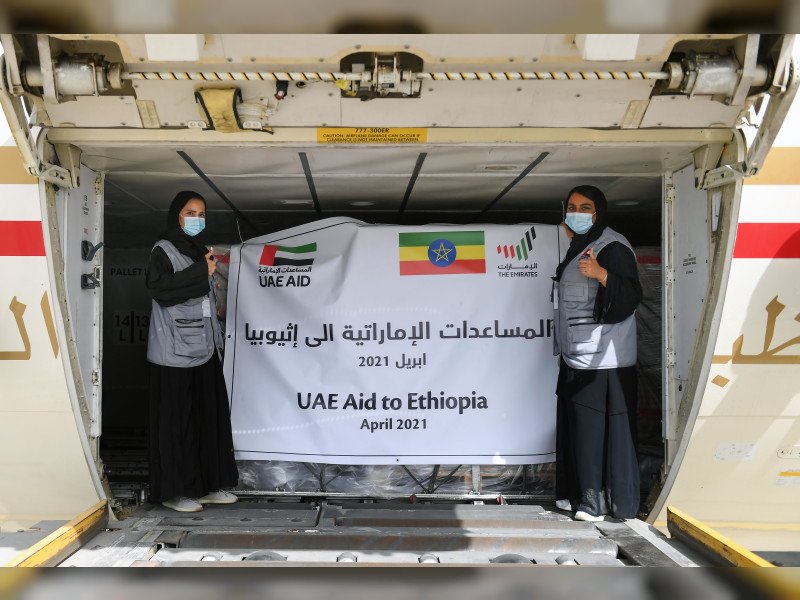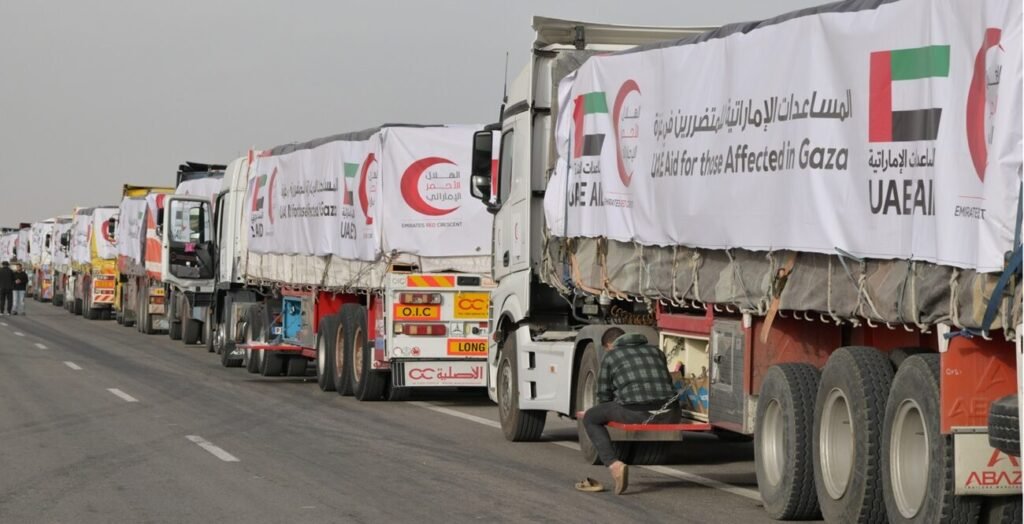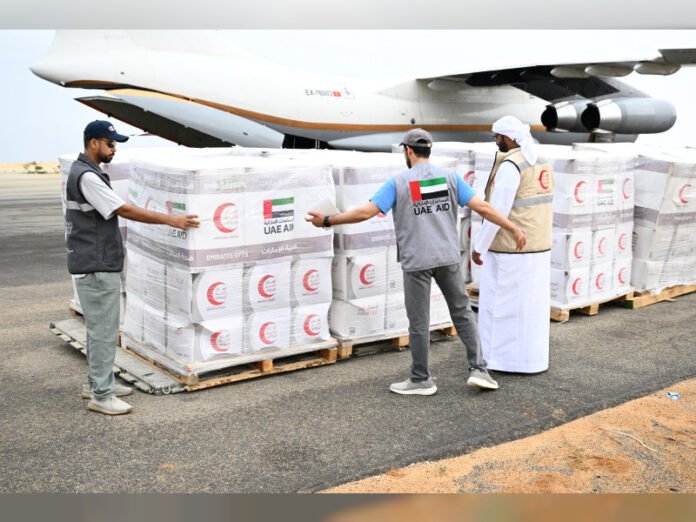Introduction to the UAE Aid Agency
The establishment of the UAE Aid Agency marks a significant development in the nation’s commitment to humanitarian efforts on a global scale. Formed and issued by President His Highness Sheikh Mohamed bin Zayed Al Nahyan, the Federal Decree No. 27 of 2024 to establish the UAE Aid Agency, this agency is specifically designed to enhance the coordination and implementation of the UAE’s aid programs. The decree underscores the agency’s strategic importance in bolstering the country’s existing humanitarian initiatives and improving its efficacy in delivering aid to those in need.
Affiliated with the International Humanitarian and Philanthropic Council, the UAE Aid Agency will operate with an independent juridical personality. This legal capacity enables the agency to function autonomously, facilitating seamless collaboration with various national and international partners in the humanitarian sector. Such affiliation is pivotal as it positions the agency within a wider network of humanitarian assistance, allowing for shared best practices and enhanced operational synergies.
The UAE Aid Agency is not just a new institution but a testament to the UAE’s long-standing dedication to humanitarianism. This commitment is rooted in the belief that humanitarian work transcends borders and is a shared responsibility among nations. The agency’s formation is a proactive response to the global need for coordinated aid efforts, particularly in regions afflicted by crises, war, and natural disasters. By establishing a dedicated agency, the UAE reinforces its international role as a major donor and a facilitator of humanitarian assistance, responding effectively to the evolving landscape of global needs.
In essence, the UAE Aid Agency is poised to become a cornerstone in the country’s humanitarian framework, actively driving the UAE’s mission to provide comprehensive aid and support across the globe. Its commitment to transparency, accountability, and effectiveness in aid delivery will be critical in addressing the pressing humanitarian challenges faced by communities worldwide.
Responsibilities and Focus Areas of the UAE Aid Agency
The UAE Aid Agency has been established with a clear mandate to enhance the country’s humanitarian efforts on both a national and international level. One of its primary responsibilities is to strategically plan, execute, and monitor government support for a spectrum of humanitarian initiatives. This comprehensive approach aims not only to address immediate crises but also to foster long-term recoveries and sustainable development in affected regions.
Disaster relief is one of the foremost focus areas of the UAE Aid Agency. The agency is tasked with coordinating rapid response efforts during emergencies, ensuring that vital resources are deployed timely and efficiently to those in need. This includes the distribution of food, medical supplies, and shelter to disaster-stricken populations. In addition, the agency is committed to implementing early recovery programs, which are designed to stabilize communities as they transition from crisis to a more resilient state.
Another critical area of focus for the UAE Aid Agency is post-conflict stabilization. The agency recognizes that rebuilding after conflict requires comprehensive strategies that consider the unique needs of each community. Its initiatives are designed to facilitate the return of displaced populations, restore essential services, and promote social cohesion. Development programs also form a substantial part of the agency’s responsibilities. These programs encompass education, health care, and economic development initiatives aimed at fostering sustainable growth and improving the quality of life for vulnerable populations.
Lastly, capacity building is a key component of the UAE Aid Agency’s mission. By enhancing the skills and capabilities of local organizations, the agency empowers communities to better respond to their challenges, thus fostering resilience. This multifaceted approach aligns with the UAE’s broader humanitarian policies, demonstrating a commitment to providing targeted and effective support to those in need.
Leadership Perspectives on the Agency’s Establishment
The establishment of the UAE Aid Agency marks a pivotal moment in humanitarian assistance, underscored by the strong sentiments expressed by key leaders of the United Arab Emirates. His Highness Sheikh Mansour bin Zayed, Deputy Prime Minister and Minister of the Presidential Court, articulated the nation’s commitment to enhancing its humanitarian visibility on the global stage. He emphasized that the UAE Aid Agency would serve as a cornerstone for coordinated relief efforts, enabling more efficient response capabilities to crises around the world. His Highness underscored the necessity of providing timely assistance and fostering a spirit of collaboration amongst nations facing humanitarian challenges.
His Highness Sheikh Abdullah bin Zayed, Minister of Foreign Affairs and International Cooperation, echoed these sentiments by highlighting the importance of international partnerships in addressing global humanitarian needs. He remarked on the essence of fostering relationships with various NGOs and international organizations, noting that collaboration is crucial for achieving sustainable solutions in crisis regions. Sheikh Abdullah’s vision revolves around leveraging the UAE’s diplomatic resources to create synergies that enable effective aid delivery, ensuring that assistance reaches those most in need efficiently and comprehensively.
Moreover, His Highness Sheikh Theyab bin Mohamed, Chairman of the Abu Dhabi Crown Prince’s Court, spoke passionately about the UAE’s enduring commitment to sustainable development as a key pillar of the agency’s mission. He articulated that alleviating suffering must go hand in hand with long-term strategies that empower communities to rebuild and flourish post-crisis. His Highness’s remarks emphasized that sustainable development is not merely an afterthought, but a crucial element integrated into all humanitarian strategies. The collective vision of UAE leadership reflects an organization deeply engaged in humanitarian efforts, illustrating the UAE’s resolve to facilitate tangible change and progress in a world often beset by adversity.
UAE’s Humanitarian Legacy and Global Impact

The United Arab Emirates (UAE) has cultivated a robust humanitarian legacy since its establishment in 1971, marked by a commitment to alleviating suffering and enhancing well-being across the globe. As one of the world’s most generous donor countries, the UAE has provided a staggering US$98 billion in foreign assistance, reflecting an unwavering dedication to humanitarian efforts. This support has reached over one billion individuals worldwide, encompassing various initiatives that span disaster relief, health care, education, and infrastructure development.
The UAE’s humanitarian endeavors have not only responded to crises but have also fostered sustainable development. The nation has prioritized aid to countries in need, particularly during natural disasters and humanitarian crises, thereby addressing immediate needs while simultaneously contributing to long-term recovery. The presence of UAE aid in conflict zones and disaster-stricken areas has often helped restore stability and hope, positively impacting communities that have suffered from prolonged hardship.
Additionally, the UAE’s contributions have elevated its status on the international stage, allowing it to cultivate partnerships with major NGOs, international organizations, and host nations. This approach has enabled the UAE to implement effective and impactful programs tailored to the specific needs of target populations. The comprehensive strategy employed by the UAE embodies its core principle of solidarity, transcending geographical boundaries and emphasizing shared human values.
As the UAE establishes its new Aid Agency, the importance of continuing this humanitarian legacy cannot be overstated. The agency is poised to enhance the nation’s already extensive contributions, ensuring that aid reaches those in most need while reinforcing the UAE’s commitment to global humanitarianism. This initiative not only consolidates the UAE’s historical contributions but lays the groundwork for future efforts, solidifying its role as a beacon of hope and generosity on the world stage.



